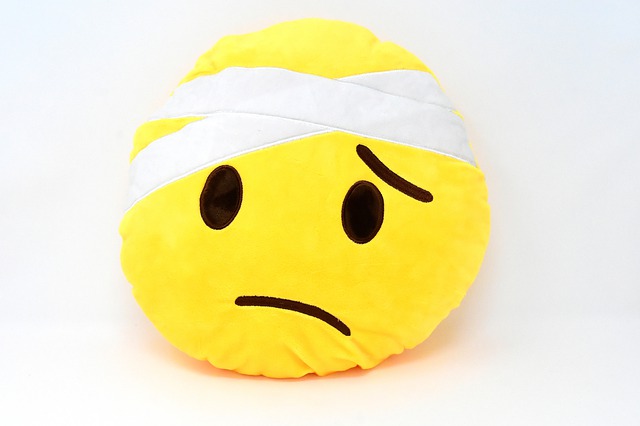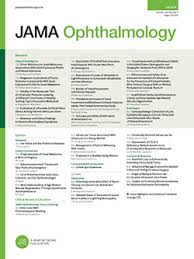
They is MDPI Proceedings, which has pulled a 2017 paper, “Role of Happiness as a Habitual Process.” The reason: Continue reading It’s official: They’ve retracted happiness.

They is MDPI Proceedings, which has pulled a 2017 paper, “Role of Happiness as a Habitual Process.” The reason: Continue reading It’s official: They’ve retracted happiness.

Five journals published by a prominent cancer research society have retracted a total of 10 papers — most of them by a former researcher at the MD Anderson Cancer Center in Houston.
Nine of the 10 retractions share that researcher, Bharat Aggarwal, as an author. Aggarwal — who more than five years ago threatened to sue us for reporting on an investigation into his work — is now up to 28 retractions, and has left his post at MD Anderson. The AACR is also appending an editor’s note to eight of his other papers — but it has not explained the reason for what it acknowledges is a lag in moving on these articles.
“Unfortunately, we have been delayed in correcting the published record, and for this we apologize,” writes the publisher of The American Association for Cancer Research (AACR), Christine Rullo, in a note in this month’s issue of Cancer Research. Rullo doesn’t say how long the journals took to handle the retractions. Continue reading Cancer journals retract 10 papers, flag 8 more, and apologize for the delay
 A lab at the University of Malaya has lost two papers and will have to correct five more — just from one publisher — over poor lab practices.
A lab at the University of Malaya has lost two papers and will have to correct five more — just from one publisher — over poor lab practices.
One of the retracted papers paper tested the effects of a plant on liver damage; its notice says the paper contains overlap with another paper from the same lab that tested a different plant for the same effect — but to save time and cut costs, the authors tested both plants in animals at the same time, and collected their tissues using one kit and protocol.
The publisher (Hindawi) decided to take a second look at the work coming out of the lab of Mahmood Ameen Abdulla after people raised questions about some of his previous work, including a Scientific Reports paper that was corrected for mistaken duplications, according to Matt Hodgkinson, the head of research integrity at Hindawi. After Hindawi spotted problems, it contacted the institution, which investigated.
According to Hodgkinson, the UM investigation concluded the problems were due to errors, not deliberate misconduct. Hindawi plans to correct five more papers from Abdulla’s lab, after consulting with Hindawi’s board members following UM’s investigation:
 For the second time in a week, we’ve come across a retraction notice that gave the wrong reason for the retraction.
For the second time in a week, we’ve come across a retraction notice that gave the wrong reason for the retraction.
Last week, it was an Elsevier journal that called a plagiarized paper a duplicate of work by the same authors who’d written the original. Today, here’s the story of a chapter in a book published by Springer Nature that manages to list two different reasons for retraction.
According to one notice for “In-silico Analysis of LncRNA-mRNA Target Prediction” in: D. Reddy Edla et al. (eds.), Advances in Machine Learning and Data Science, Advances in Intelligent Systems and Computing 705, the chapter was retracted for plagiarism.
But according to the other notice, the retraction happened because Continue reading One retraction notice says plagiarism. The other says it was an error in an algorithm. Which was it?
 Before we present this week’s Weekend Reads, a question: Do you enjoy our weekly roundup? If so, we could really use your help. Would you consider a tax-deductible donation to support Weekend Reads, and our daily work? Thanks in advance.
Before we present this week’s Weekend Reads, a question: Do you enjoy our weekly roundup? If so, we could really use your help. Would you consider a tax-deductible donation to support Weekend Reads, and our daily work? Thanks in advance.
The week at Retraction Watch featured a high-profile paper about cataract surgery and the risk of death that turned out to be wrong; a press release retraction following outrage over a study of trans teens; and a UConn researcher who “recklessly” used false data in grant applications. Here’s what was happening elsewhere: Continue reading Weekend reads: China’s black market in publishing; no fraud in NgAgo gene editing work, says university; predatory journal crackdown

If you read this space, you probably know the name Brad Bushman. He studies the effects of violent video games on the people who play them. He also has just retracted his third paper, and significantly corrected another.
Although Bushman remains a prominent voice in a highly contentious field — prompting numerous media to consult him after school shootings or other violent acts — he’s retracted two papers, one following an investigation at his institution, the Ohio State University (OSU), which prompted OSU to strip his co-author of her PhD. (There’s a lot more to tell about that story, including the backlash outside critics faced for taking their concerns about the paper public. To read more, check out our in-depth piece in Motherboard.)
Bushman’s third retraction came this month; he nearly had a fourth as well, but attorneys for the publisher decided that a massive correction (to a paper which previously had been flagged with an expression of concern) would be more appropriate.
The retraction notice from Current Opinion in Psychology states the paper showed too much similarity to a 2016 paper in the same journal by Bushman and Arlin James Benjamin, based at the University of Arkansas-Fort Smith. It notes that although Bushman was the guest editor of the issue of the journal:
Continue reading Prominent video game-violence researcher loses another paper to retraction

A liver physiologist at the University of Connecticut with millions of dollars in Federal U.S. funding included false data in half a dozen grant applications, according to the U.S. Office of Research Integrity.
Li Wang, according to the ORI, Continue reading UConn prof “recklessly” used false data in NIH grant applications, says Federal watchdog
 Less than two weeks ago, PLOS ONE published a paper about the parents of teenagers who appeared to immediately start questioning their gender identity around the time of puberty. Then the critiques flooded in.
Less than two weeks ago, PLOS ONE published a paper about the parents of teenagers who appeared to immediately start questioning their gender identity around the time of puberty. Then the critiques flooded in.
The paper — about a highly contentious issue — surveyed parents who felt that their children had suddenly started to question their gender identity around the time of puberty, prompting author Lisa Littman at Brown University to coin a new phenomenon as “rapid-onset gender dysphoria.” Any discussion of transgender identity in young children can get politicized, and this paper was no exception.
The political aspect of the findings aside, readers have raised some serious concerns about the methodology behind the PLOS ONE paper. So far, multiple comments on the paper have pointed out potential issues in what one user dubbed a “fatally flawed paper” — such as the lack of a control group, the fact that Littman recruited study participants from allegedly biased websites, and only interviewed parents, not children or their clinicians. Brown University even took down a press release touting the study when it first appeared. And the journal has announced it’s taking a second look at the paper.
Earlier this year, The Advocate, a publication focused on LGBT issues, published a commentary titled “‘Rapid Onset Gender Dysphoria’” is biased junk science,” after the Journal for Adolescent Health published one of Littman’s poster abstracts. According the Advocate:
Continue reading Reader outcry prompts Brown to retract press release on trans teens
 Late last year, news stories trumpeted the findings: Older women who received surgery to fix their cataracts were less likely to die over the course of a study period.
Late last year, news stories trumpeted the findings: Older women who received surgery to fix their cataracts were less likely to die over the course of a study period.
Now, the same group of authors is saying the exact opposite may be true.
Last week, the researchers retracted their 2017 paper in JAMA Ophthalmology and replaced it with an updated version that reports that women who received the surgery actually had a higher risk of dying.
The original paper was covered by many news outlets — including Reuters and the New York Times — some of which suggested the procedure may help with more than just vision (even though the study, by its nature, couldn’t determine whether or not surgery caused women to live longer). Annette Flanagin, the Executive Managing Editor for The JAMA Network, told us the publisher tried to get the word out about the significant change to the findings:
 A 2017 paper, when originally published, had a fairly clear message: People who got the flu vaccine every year were no less protected than someone who had skipped last year’s dose. But now that it’s been retracted, the picture is somewhat less clear.
A 2017 paper, when originally published, had a fairly clear message: People who got the flu vaccine every year were no less protected than someone who had skipped last year’s dose. But now that it’s been retracted, the picture is somewhat less clear.
The retraction notice in BMC Medicine doesn’t provide much information — it simply says the authors included and omitted some information that affects the conclusions.
Last author Bryna Warshawsky, the medical director of communicable diseases at Public Health Ontario in Canada, provided some additional explanation to Retraction Watch — namely, that after addressing errors in the analysis, the researchers found that there were actually slight differences; specifically, for some strains of the flu, the new analysis suggests that the flu shot was slightly more effective in people who’d skipped last year’s dose.
Warshawsky told Retraction Watch she and her team have submitted the corrected paper to the journal, and the bottom line message stays the same:
Continue reading Authors retract paper on effects of skipping the flu vaccine